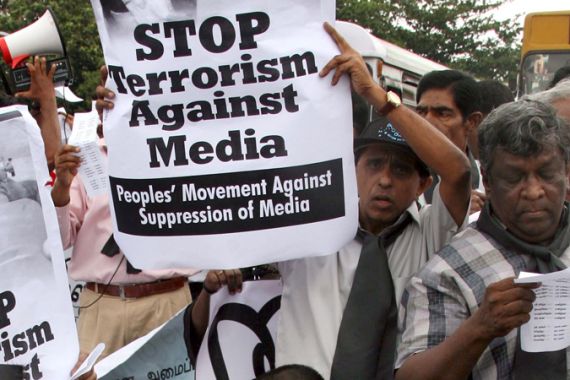
Sri Lanka’s media blockade
Two years after the civil war ended, do Sri Lanka’s journalists still find themselves in dangerous territory?
One of the consequences of war is that even after the fighting stops media freedom remains precarious. Two years after the Sinhalese-led government declared victory in its 26-year civil war with the separatist Tamil Tigers, that is the situation Sri Lankan journalists continue to find themselves in.
During the war – and particularly towards the end of it – the government denied the media access to the war zone. News of the mounting violence and death toll leaked out through mobile phone videos filmed by soldiers and stories told by refugees.
Keep reading
list of 4 itemsInside the pressures facing Quebec’s billion-dollar maple syrup industry
‘Accepted in both [worlds]’: Indonesia’s Chinese Muslims prepare for Eid
Photos: Mexico, US, Canada mesmerised by rare total solar eclipse
At the time, government rhetoric was “you are either with us or against us” in this fight. But, with the war over, that sentiment has continued and it has been directed, in particular, at the media.
Journalists investigating what happened during the last days of the war or even looking into more mundane stories about government corruption or wrongdoing still find themselves working in dangerous territory.
Listening Post’s Meenakshi Ravi looks at the media environment in post-war Sri Lanka and the ongoing struggle in which journalists find themselves when reporting on the government.
|
“If you take the nature of the media repression in Sri Lanka today, perhaps more than before, engaging in journalism without fear is impossible for any media institution ….On the one hand the government controls corporate media through its allies and on the other, independent news outlets are sought to be influenced by giving senior editorial staff financial and political benefits.” Sunil Jayasekera from the Free Media Movement |